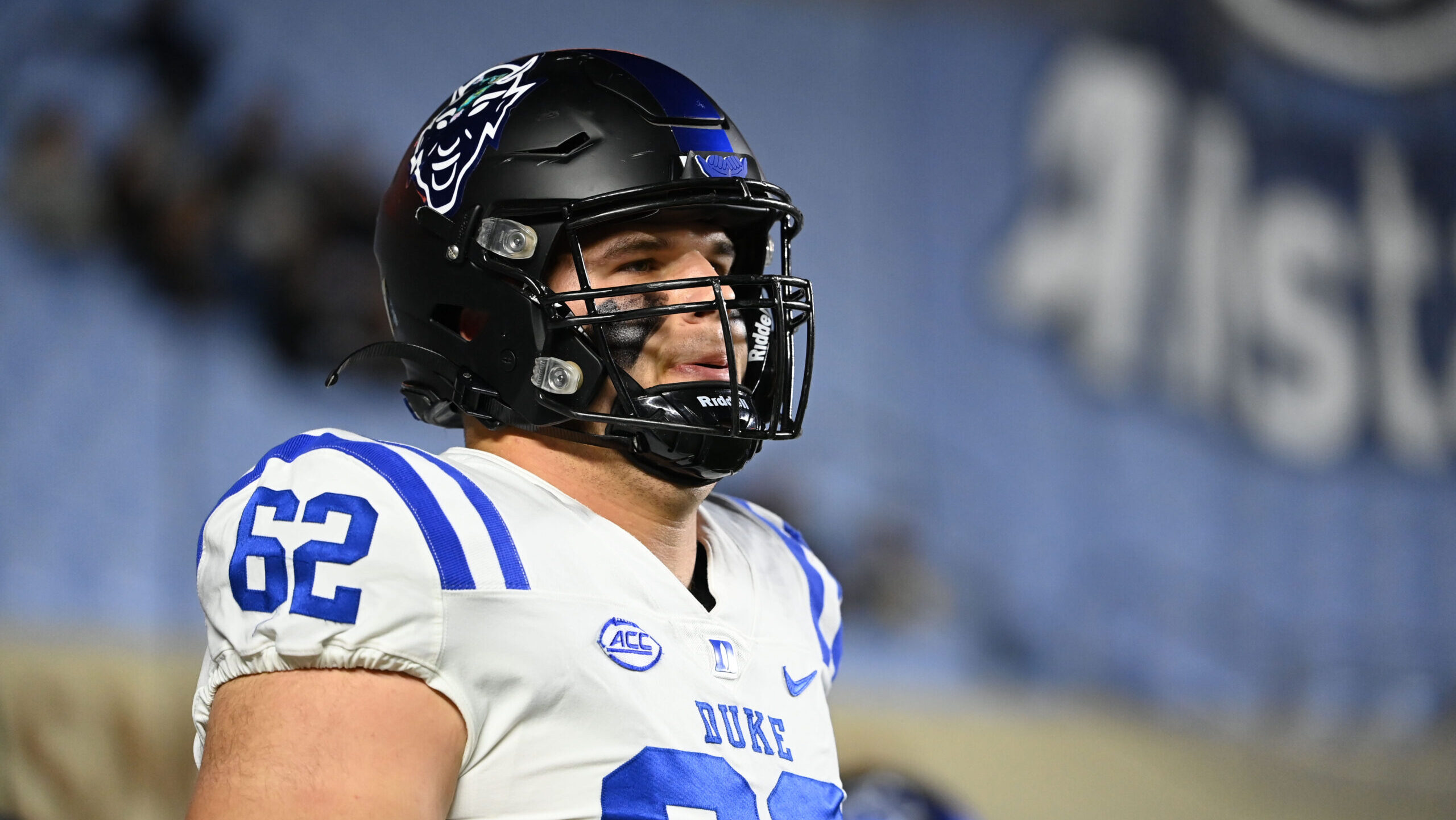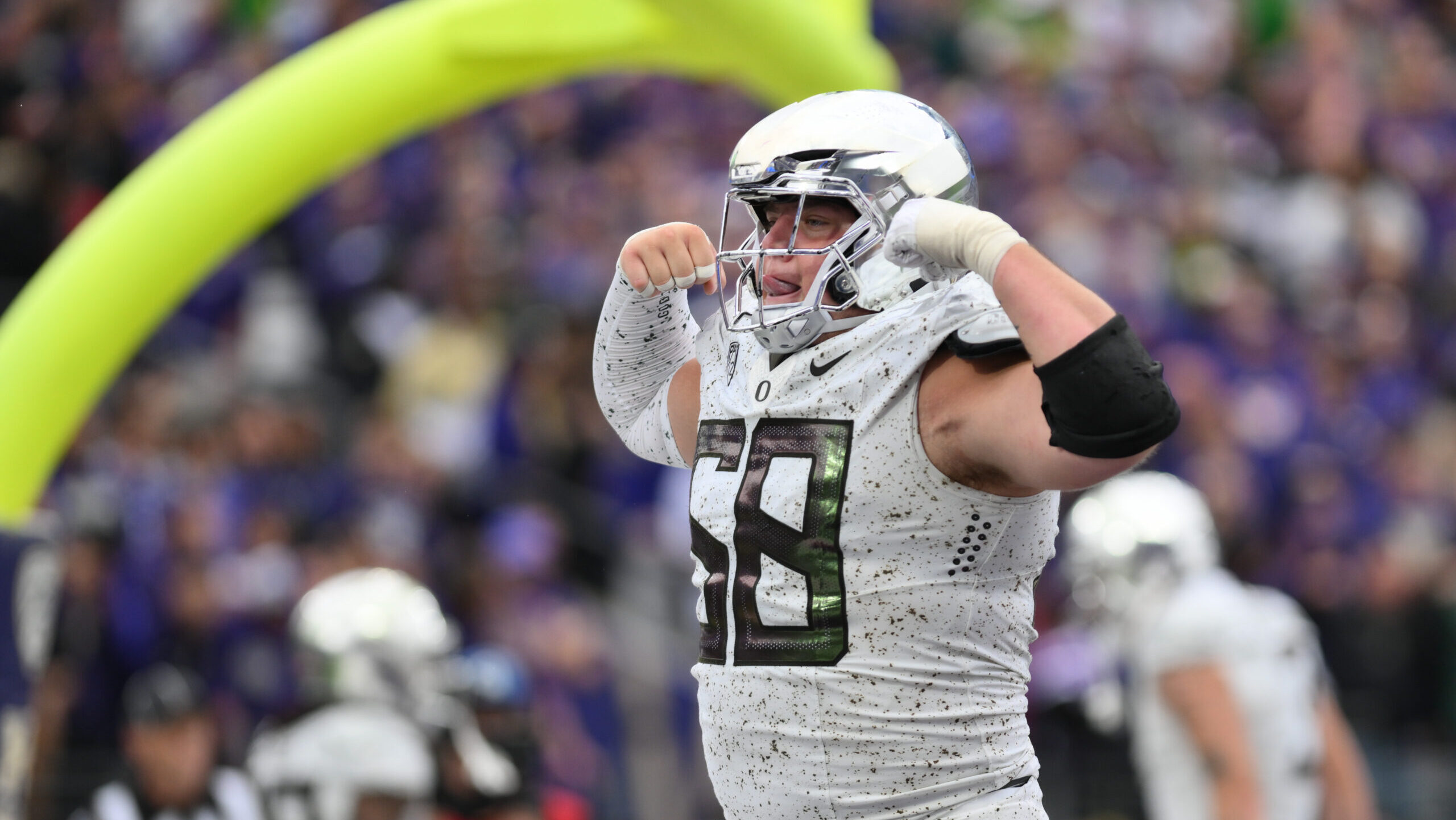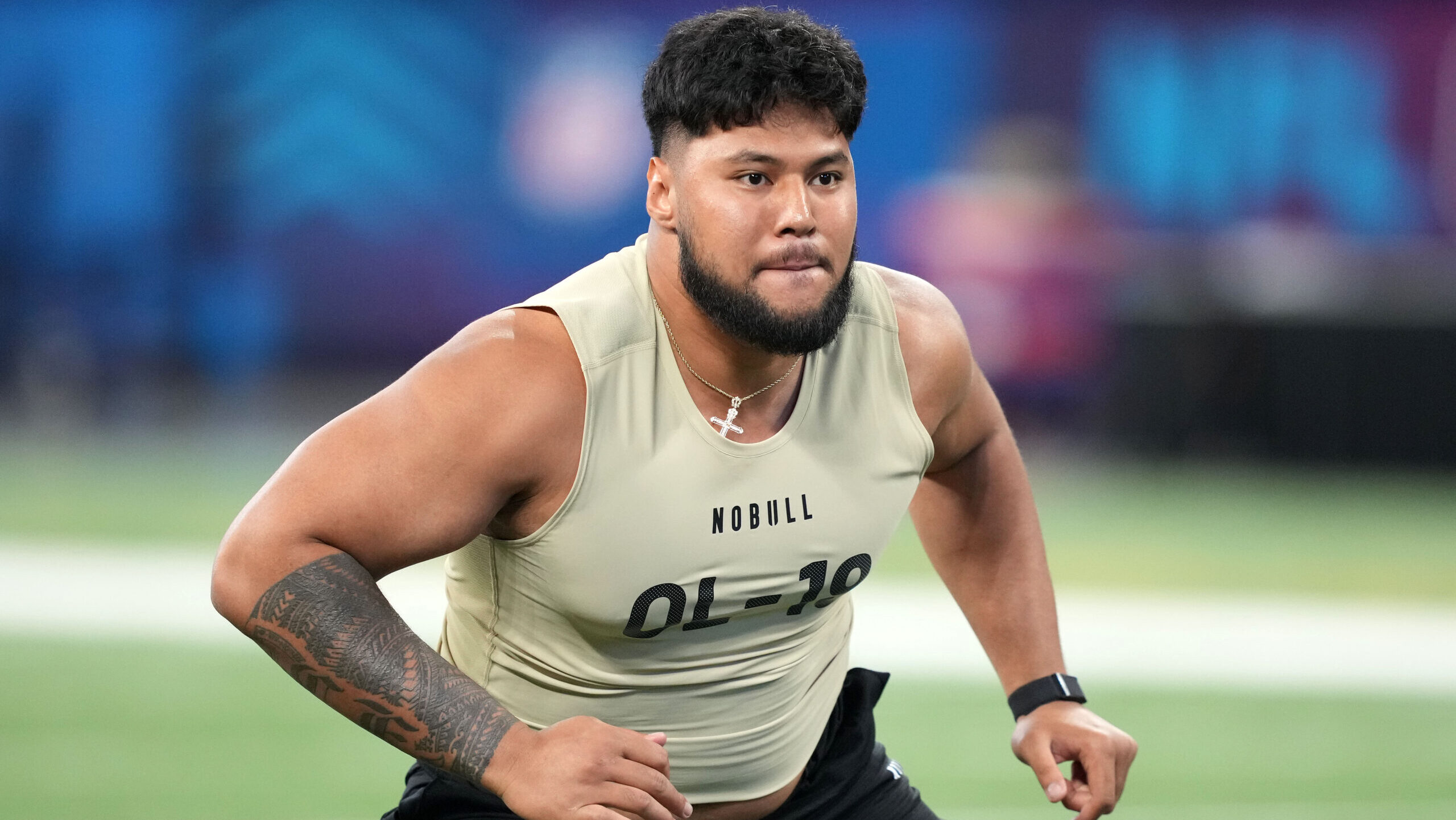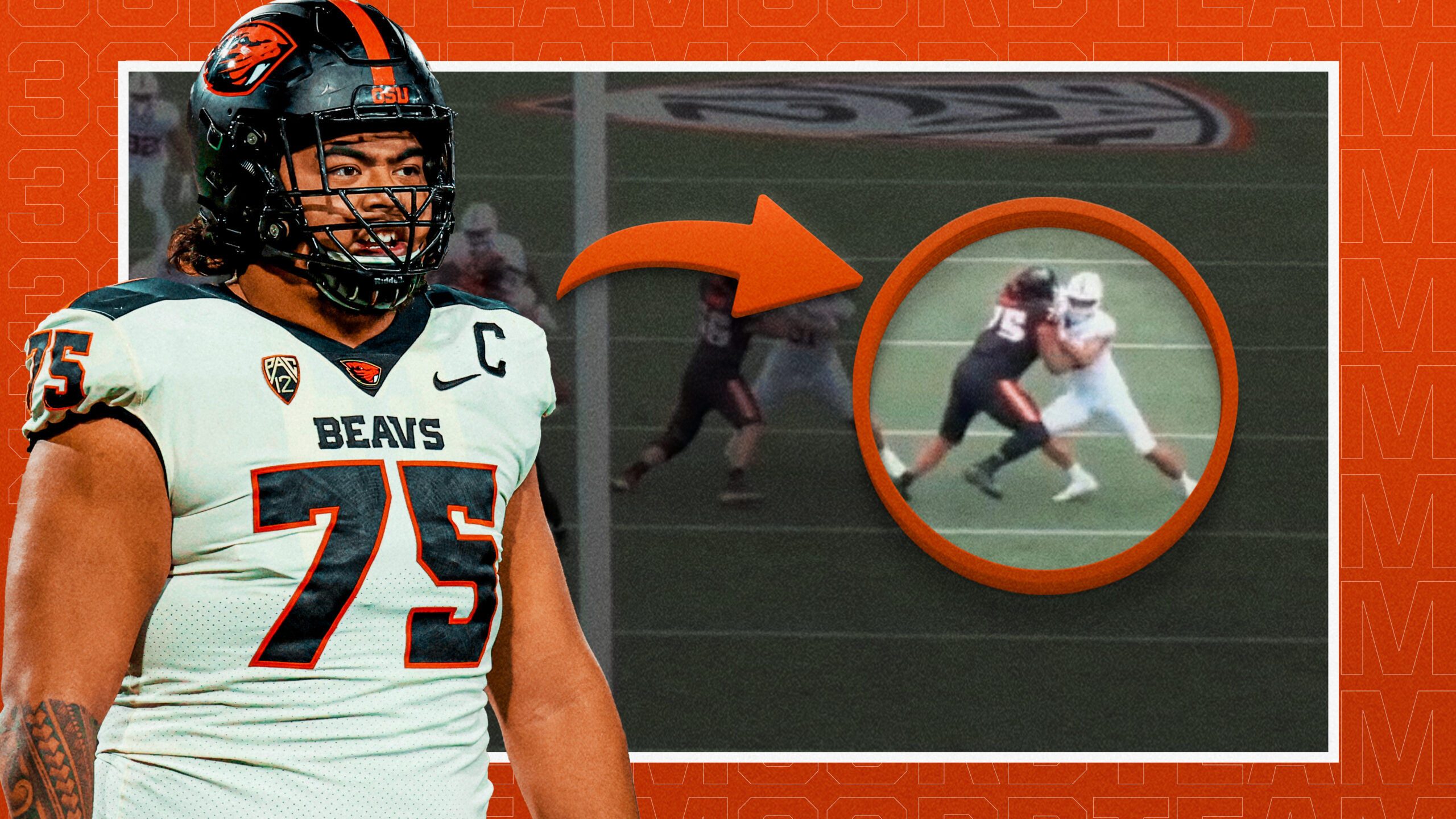Expert Analysis
3/31/22
8 min read
Should the Detroit Lions Draft Malik Willis Second Overall?
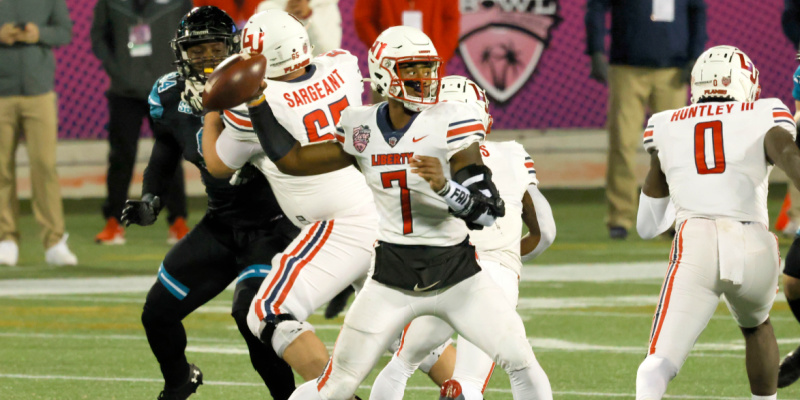
This year's NFL draft is seen by many to be the one in which the pause button has been hit on the conveyor belt of quarterback talent entering the league from the college ranks.
The narrative surrounding the 2022 draft is a familiar one at this point. It's a bad quarterback class, and it is debatable whether there is a signal-caller worthy of being selected in the first round, never mind the top 10.
Not since the 2013 draft, when E.J. Manuel was the first quarterback selected with the 16th overall pick, has the NFL had an annual selection meeting where a quarterback did not go in the top 10.
Regardless of the quality of the class, in the modern NFL, quarterbacks tend to get pushed up the board, and perhaps the lead candidate to receive that bump from this year's crop is Liberty's dual-threat sensation Malik Willis.
Willis put on a show this month at the NFL Scouting Combine and repeated the feat at his pro day, where he connected on 64 of his 69 scripted throws, continuing to showcase the upside as a downfield thrower that could help a team fall in love with him.
With his stock seemingly soaring, there is growing debate about whether the Detroit Lions, who own the second overall pick in the draft, could be the team to become enamored with Willis.
Given the Houston Texans appear likely to give Davis Mills a full season as a starter and the Atlanta Falcons signed Marcus Mariota to a two-year contract in the wake of the Matt Ryan trade, the Lions – along with the Carolina Panthers and Seattle Seahawks – stand out as the three teams with top-10 picks who could use one on a quarterback.
Though the first year of the rebuild under Dan Campbell was encouraging, it should not have left anybody under any illusion that the Lions are a team close to competing. As such, they are in a better position than most to take a patient approach in bringing along a quarterback who may not be ready to play right away but who offers game-changing potential.
The likely outcome is that the Lions invest a premium talent at another position with pick two, but what would be the pros and cons of them springing a surprise and making Willis the quarterback of the future?
Pro: A pressure-free environment
Making a big bet on a quarterback prospect is typically something that invites pressure. You don't have to cast your mind back very far for a reminder of that, with the San Francisco 49ers' 2021 season partly defined by near-constant calls for third overall pick Trey Lance to take over as the starter whenever Jimmy Garoppolo struggled.
Unlike the Niners, however, the Lions are not in a position to contend. While they may need to justify eschewing elite prospects to take Willis in the top five, they are not under pressure to win right now.
Progress will be expected after an encouraging 2021 campaign, with the Lions' 3-13-1 record not a true reflection of how competitive they were for much of the year. Still, with Detroit able to get out of Jared Goff's contract after next season, they can afford to slow play things with Willis and, unless things really go south, avoid risking the wrath of a fanbase that should understand the Lions are at least another offseason away from having a roster worthy of a playoff push.
There is debate over the merits of sitting a rookie quarterback in the modern NFL. However, Willis is a raw prospect who would clearly benefit from a year of pressure-free NFL tutelage. He can get that in Detroit.
Con: A substantial reach
Is it even worth spending such a high pick on a quarterback if he requires a year of seasoning?
That is the obvious retort to talk of drafting Willis only to sit him on the bench, and the answer is dependent on the situation.
Going back to the example of Lance, he was widely regarded as being worth a top-10 pick, but it was understood he may not be ready to be thrust into an NFL starting role having only played one full season of college football at the FCS level.
The case is more difficult to make for Willis, who is ranked 35th on The 33rd Team Big Board.
In other words, were the Lions to dramatically decide to go with the Liberty quarterback on draft night, they would be reaching for a player with a second-round grade who many believe should sit his first year in the NFL while passing on the several top-tier defensive prospects who could fill huge voids on the front seven and in the defensive backfield for Detroit.
It would be a remarkable show of their belief in Willis, but it would also be a very tough sell to people outside the building.
Con: Problems processing
Furthering the case against using a premium pick on a quarterback who may benefit from a year on the bench is that one of Willis' primary issues is one best addressed by putting him on the field.
Though Willis is capable of reading the entire field and getting through his progressions, processing at a high level has proven a significant challenge.
Indeed, as his 33rd Team scouting report explains, Willis "needs refinement in reads, frequently missing modest windows between the numbers and choosing poor deep balls."
Refinement could be achieved from time spent on the field reading NFL defenses and learning from the rookie mistakes while doing so.
Potentially denying Willis that opportunity to have him sit behind Goff would risk stalling his development and arguably improve the odds of the former Auburn transfer failing to deliver in 2023, when the Lions may be seen as ready to compete.
Pro: An aggressive approach
Of course, there is the possibility the Lions view Willis as being ready to battle for a starting job right away.
A decision to plug Willis in straight off the bat is something that could be considered to open a deep passing game that was too often closed to the Lions in 2021.
Jared Goff's 38 passing attempts of at least 20 air yards ranked 23rd in the NFL last season. Per NextGen Stats, Goff's 6.6 intended air yards per attempt ranked last in the NFL while only Mike Glennon (3.9) averaged fewer completed air yards per attempt.
By contrast, Willis' average depth of target was over 12 yards in each of his two seasons at Liberty.
While the transition away from college football and the spread offense to the pros will see that come down in the NFL, pairing him with a receiving corps that recently added a legitimate deep threat in D.J. Chark and features Amon-Ra St. Brown – who had as many 20-yard receptions (11) as D.K. Metcalf last season – and an emerging tight end in T.J. Hockenson would be a recipe for a much more explosive Lions attack.
Con: Doubts over durability
Though the NFL, having seen Russell Wilson enjoy consistent success and Baker Mayfield and Kyler Murray selected with first overall pick, appears to be past the point where height is a disqualifying factor for a quarterback prospect, there may be some concerns over Willis' build.
Standing at just over 6-feet and 215 pounds, a lack of prototypical height may exacerbate his issues as a processor when the pocket gets muddied by the monstrously built athletes that occupy NFL defensive lines.
On top of that, with his slight build and how often Willis breaks into the open field with the ball in his hand, there is an obvious risk of him taking a damaging hit that leads to an injury.
Enhanced injury concern is a question with all dual-threat quarterbacks, but it has not prevented the NFL from pivoting towards them as the modern-day archetype. Still, when considering selecting a quarterback in the top five, it has to be part of the equation.
Pro: Changing the calculus
That chance of Willis getting hurt running the ball is a trade-off the team that eventually drafts him will gladly take if he is able to change the calculus in the pros in the same fashion he did at Liberty.
As his scouting report details, Willis boasts "elite change of direction with outstanding foot speed, explosiveness, and bend," with that athleticism allowing him to consistently evade pressure and escape the pocket to extend the play and pick up yardage with his legs.
His elusiveness enabling him to string together cuts and his contact balance helping him shake off tacklers, Willis averaged 5.4 yards per carry and scored 27 rushing touchdowns at Liberty.
Extremely comfortable throwing on the run, defenses must guard against precise downfield throws from Willis when he breaks the pocket, which is a threat the Lions certainly do not carry with Goff running the offense.
The Buffalo Bills, Baltimore Ravens and Arizona Cardinals have each enjoyed significant success on offense with quarterbacks who make defenses defend 11 on 11.
Josh Allen, Lamar Jackson and Kyler Murray are case studies that factor substantially into the argument for spending a high pick on Willis. Yet the questions over his ability as a processor, his frame and the talent in other areas that is available at the top of the draft may lead the Lions to see him as a shrewder investment at the bottom of the first round rather than the top.


